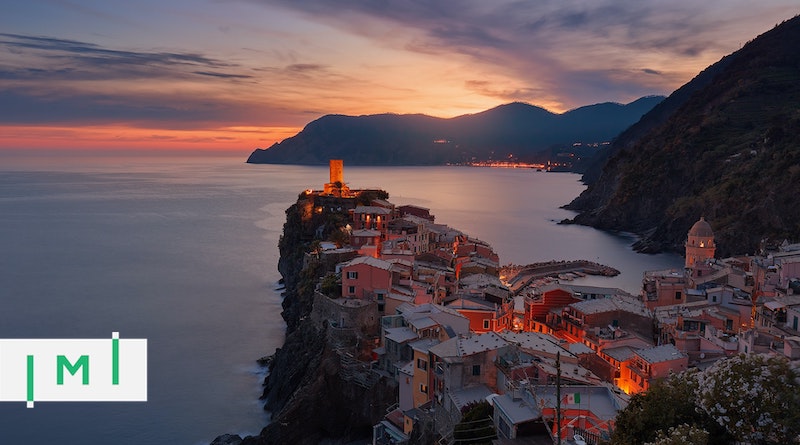Italy’s September Amendments to “La Dolce Visa” Finally Makes it a “Real Golden Visa”
When first announced in 2017 (and formally opened in 2018), Italy’s investor visa didn’t turn as many heads as the government had expected. In a December 2019 analysis of the program, we explained why:
The investment requirements are the chief cause of [the program’s lack of success].
The IIV offers four routes of investment, which are:
-
- A €500,000 investment in an Italian “innovative startup”
- A €1,000,000 investment in an Italian limited company
- A €1,000,000 investment in a philanthropic initiative
- A €2,000,000 investment in Italian government bonds
What instantly catches the eye of any potential investor or RCBI agent is that the capital required – for a temporary residency permit, mind you – is out of tact with the rest of Europe’s programs.
Of the four options Italy offers, we can only classify one – government bonds – as low-risk. And even that is not obvious in 2019. The remaining three are all high-risk options.
In brief, higher prices and higher risk were to blame.
Then, this spring, at the height of the first Italian COVID-wave, the government made drastic changes to the program as part of the broader “Decreto Rilancio” (the Revival Decree), a set of legal amendments aiming to quickly bolster investment and job creation in Italy to help the economy recover from the pandemic.
The investment requirements for the program’s first two options were halved to EUR 250,000 and EUR 500,000, respectively. At the time, IMI described the changes as important but not sufficient to make the program a serious contender to Greece, Portugal, and Spain.
While a halving of investment requirements will certainly improve the program’s prospects, the scheme’s most significant obstacle is that only one of its four routes – that of government bonds, which requires virtually the same capital outlay as the direct route to EU citizenship in Cyprus, which would enable investors to reside in Italy in any case – is considered “low-risk”. Italy offers no real estate investment option.
Italy still offers no real estate option, but the latest round of amendments, first announced in September, included two crucial changes that will certainly bolster the program’s appeal:
“The Semplificazioni decree, of December,” explains Marco Bersani, founder of Bersani & Partners International Law, “exempted golden visa investors from the physical presence requirements until now imposed on holders of all categories of Italian residency visas.” Those rules, in effect, had obliged golden visa investors to physically remain in Italy for most of the year, a rarely-discussed but clear disadvantage in the golden visa market.
“This is a general rule applicable to all residence permits that states that the resident cannot stay outside of Italy for more than a half of the total duration of the permit,” clarifies Bersani. “So, for example, if you had a two-year permit [the initial duration for golden visa holders], you could not spend more than one year outside of Italy (except if you could prove you had valid reasons). That general rule, though still applicable for all other residence categories, no longer applies to golden visa investors.”
In effect, the change has reduced the physical presence day-count requirement for Italy’s investor visa to zero. The change has moved the Dolce Visa from a position of clear disadvantage compared to its competitors to having the most lax physical presence requirement among all EU golden visas.
Apply and invest through a company
The second impactful change introduced in September has to do with what juridical person makes the investment. Individuals can now apply and make qualifying investments through their companies, thereby significantly reducing the financial risk of private individuals.
“The applicant,” points out Bersani, “can be a physical person (the norm among golden visas) or, alternatively, the CEO/Legal Representative of a foreign company. This allows, technically, for the investment to be made through the applicant’s company.
Bersani highlights two additional competitive advantages for Italy.
Application-related risk to the principal investment, he illustrates, is effectively absent in Italy because, unlike in many other programs, the government does not ask for the investment to be concluded until after the visa has been approved. In other words, there is no risk of investing in vain.
For those willing to become tax residents in Italy, Bersani adds, the new EUR 100,000 flat tax on global earnings regime also offers considerable advantages to high-income individuals. Though this is a clear advantage over Spain’s golden visa, both Portugal (through the Non-Habitual Resident regime) and Greece (lump-sum tax offers for as little as EUR 25,000 a year) can boast of similar advantages.
One disadvantage that remains for the Italian program is that all Italian residence visas require that the applicant maintain a home in Italy.
“The law requires that the applicant have a ‘suitable’ house in proportion to the amount of people who will live there. So, for example, if you have declared to the consulate that you will be bringing four family members and your rental agreement shows you will be living in a studio apartment, that won’t be accepted.”
On the whole, however, the Italian Dolce Visa has come a long way in the short time since it was first introduced, and the government has consistently demonstrated a willingness to enhance it.
“In conclusion,” says Bersani, “the Italian program has evolved enormously since the beginning and is now ‘a real golden visa’.”
Christian Henrik Nesheim is the founder and editor of Investment Migration Insider, the #1 magazine – online or offline – for residency and citizenship by investment. He is an internationally recognized expert, speaker, documentary producer, and writer on the subject of investment migration, whose work is cited in the Economist, Bloomberg, Fortune, Forbes, Newsweek, and Business Insider. Norwegian by birth, Christian has spent the last 16 years in the United States, China, Spain, and Portugal.



